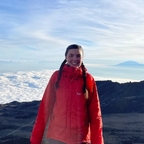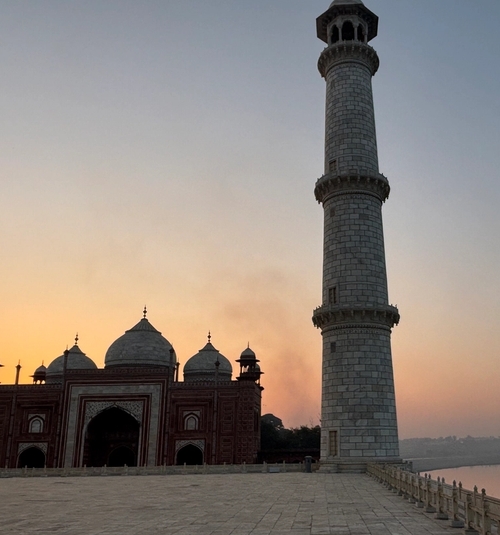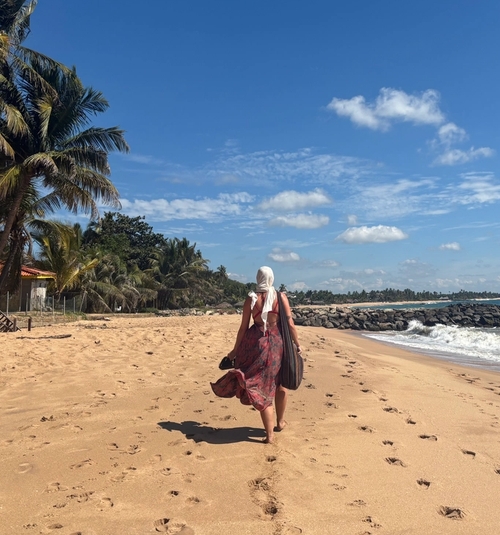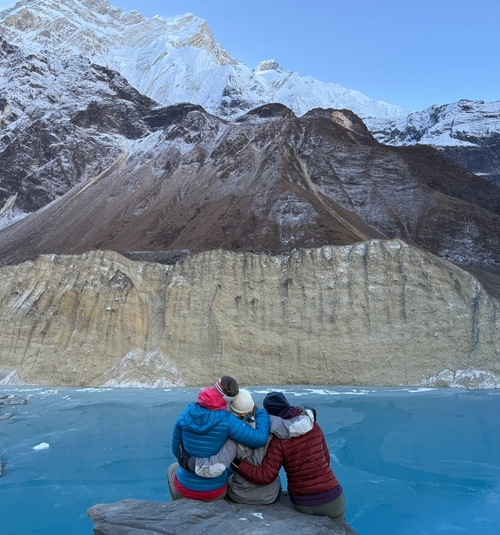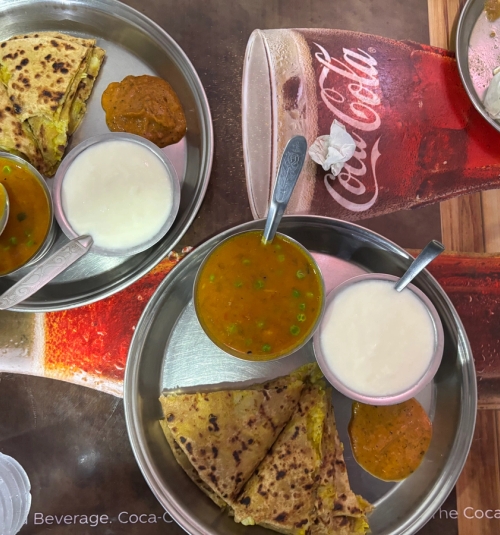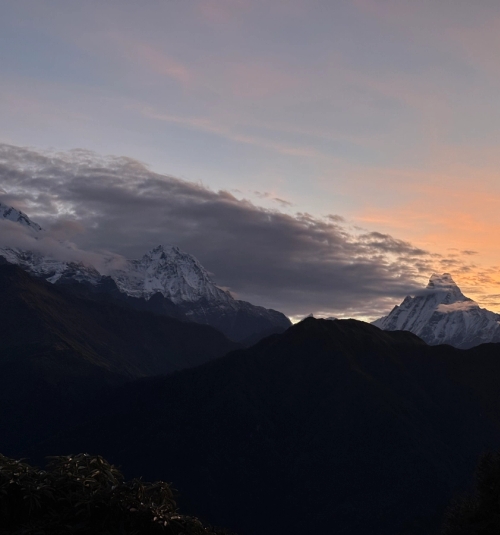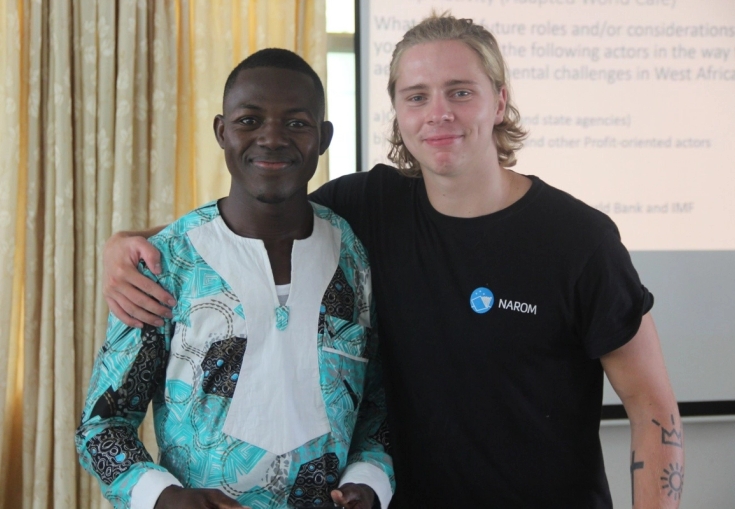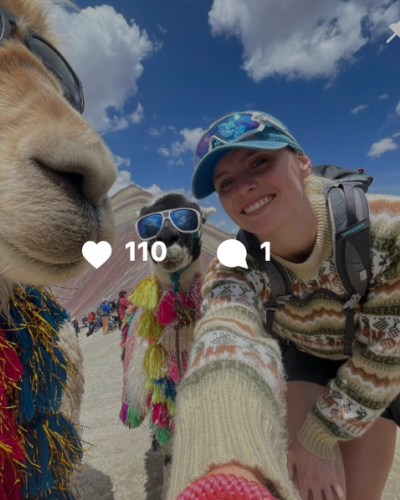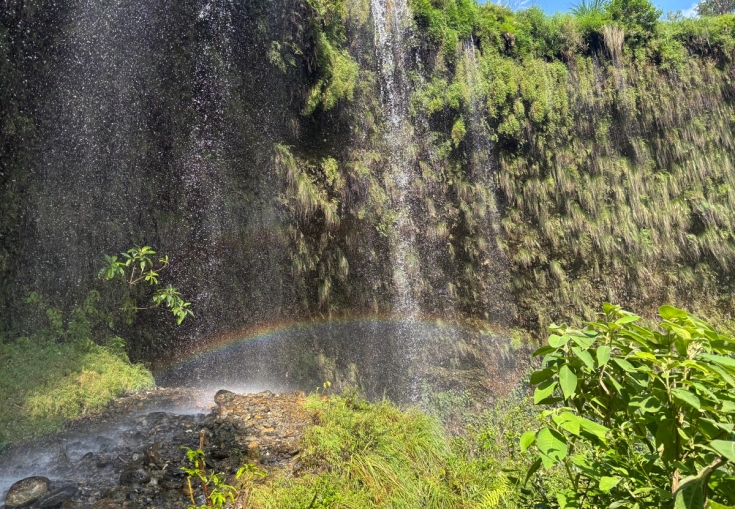
A typical week as a student in Pokhara

This text is translated using AI.
View the original article here.Now that I've settled into the rhythm here in Pokhara, I thought I'd take you through what a typical study week looks like.
We start our days early. This past week, a small group of us have started meeting at 7:30 on the roof to meditate together. In an otherwise social day full of impressions, this has been a really good way to start the day before we head to lectures at nine.
From 9 to 13, we're in the classroom, and throughout the semester, several professors and guest lecturers come by. Some days we have seminars afterward – including introductions to academic reading or discussions where we reflect on topics and issues related to what's been presented in the lectures. Then it's lunch at Little Windows where we are served delicious vegetarian food. Here we can also buy drinks, and an ice-cold cola (which actually only costs 7 kroner!) is perfect when the sun is blazing.
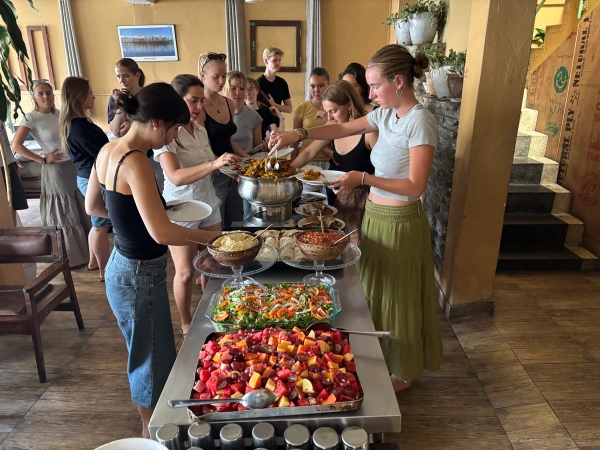
Once a week, we have "Shut up and read". The concept is pretty much in the name: we gather at a café, sit in silence, and read the curriculum before taking a break to chat a bit. Completely voluntary, but a very nice and efficient way to get some reading done.
Afternoons are open for us to use as we wish, and Pokhara has plenty to offer in terms of both relaxing and challenging activities. Right now, the monsoon season is nearing its end, and for the first time, we can see the outlines of the mountains. From the hotel's rooftop terrace, we can glimpse both Annapurna South and the iconic Macchapuchhre, also known as Fishtail.
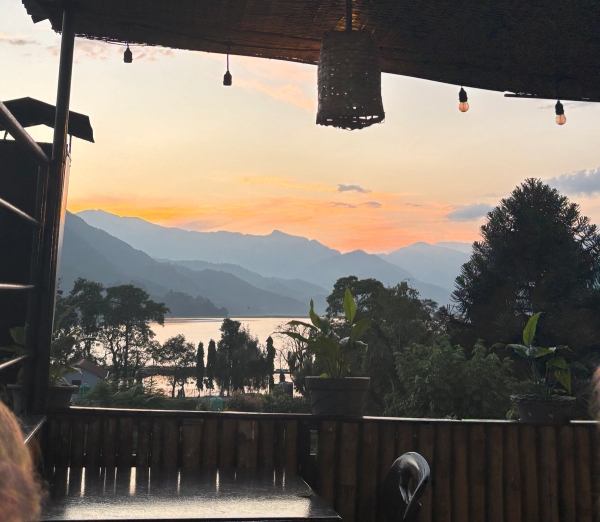
To make the most of the sun, we decided one day to go to a waterfall just outside the city. After probably a hundred steps down, we made it into the valley. It was magical to get into the valley where the river curves through the landscape and cool off in the pools. In the waterfalls, we could glimpse rainbows, and the pressure was so strong it felt like a hailstorm, and we almost lost our balance trying to walk through. On the way back up, we met a group of boys running up and down the stairs – with stones on their backs. We chatted with them a bit, and it turned out they were training for the British Gurkha forces recruitment, just a few days away. This is one of the most attractive career paths for young boys in Nepal – it's not just about status but also a promise of a better future with financial stability and British citizenship.
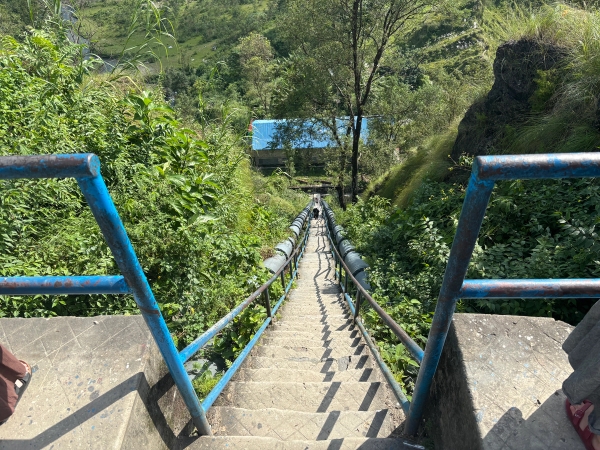
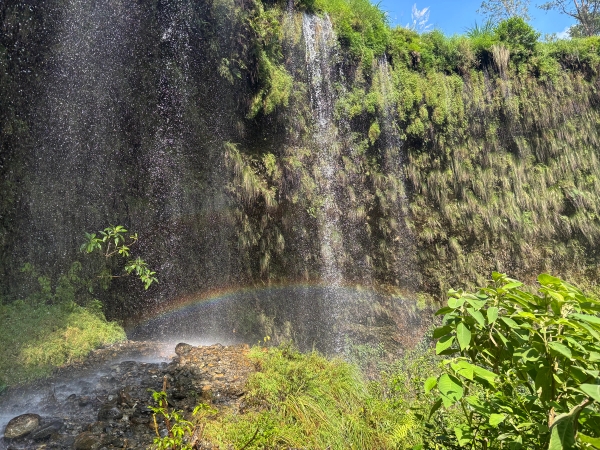
Another day we went down to the lake to rent SUP boards. Just paddling around, swimming, and floating while the mountains peek out from behind the hills – it's something every student here should try. In the evenings, I also like to stroll along the water's edge and find a cozy spot to sit and read while watching the sun reflect in the water.
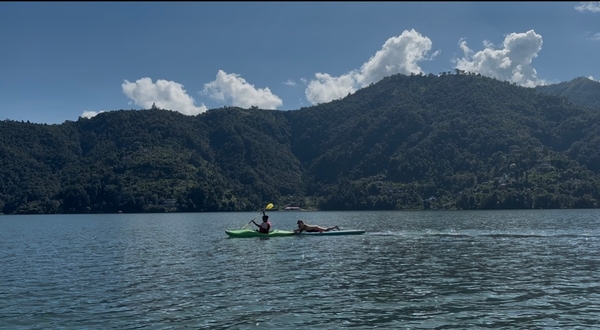
Then came the first weekend where we had the opportunity to make plans over several days. While many chose to travel to a quaint village, two others and I decided to go on a "silent meditation retreat". We got everything but silence – but maybe that's why we learned something. What we thought would be a weekend of silence and reflection turned into 11-hour days with hour-long monologues about Buddhist teachings – a bit demanding but enlightening nonetheless. Personally, I would probably call the weekend course "introduction to the life of a Buddhist monk". Fortunately, we managed to take it with a smile, and the lectures sparked discussions and conversations that brought us closer together. While we struggled to hold the same positions on the meditation cushions on the floor, the monk sat unwaveringly and spoke from the heart. I've never filled so many pages in my notebook during a session.
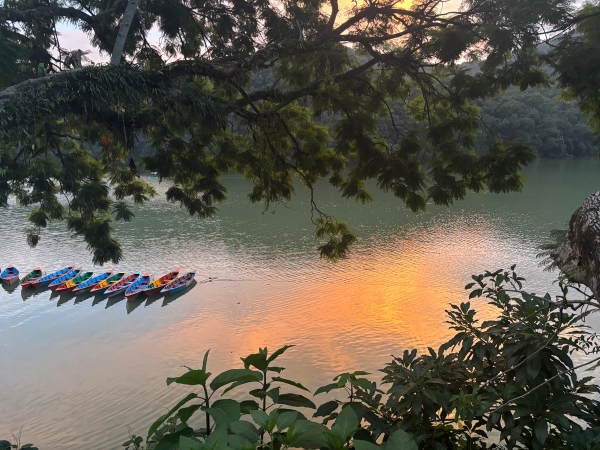
If there's one thing I've learned from the first three weeks in Nepal, it's that flexibility is the key to everything. Things rarely go as planned, as both the weather and power outages (which occur several times a day) run their own course here. Waking up to thunder or being stranded at a café due to heavy rain and lightning is something you just have to get used to. But I find it exciting and a healthy change from Norway.
So this is a "normal" week in Pokhara – as much as I can call anything normal here. Here I wake up every day without knowing what the day will bring, and that's precisely what makes everyday life here a little adventure, where even the simplest things can become unforgettable experiences.
